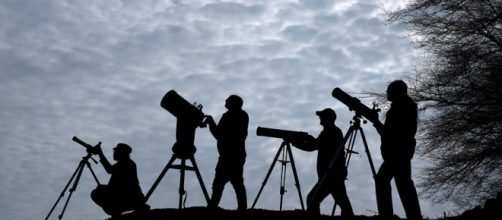The Great American Eclipse is only a month away. In this wild and unique celestial event, people from all over the country will flock a slim line that runs the length of the United States. This is the path of Totality. If you are at the right place, at the right time, you can witness one of nature's greatest phenomena.
But you already knew that. You already know where to be and when to be there. You know to wear your handy-dandy eclipse shades as not to burn your eyeballs. You know how fleeting those few minutes of totality can be.
So here is something you might not have known.
Peel your eyes away from the sky for just ten seconds and be a witness to the other side of this spectacular event.
It just might amaze you.
Yes, animals know there is an eclipse too
In a study conducted in Zimbabwe, a team of 250 people observed a smorgasbord of animals throughout an eclipse. Data from previous eclipses and anecdotal observations from others were all culminated in this study. Here are some interesting reactions from some of the animals they observed.
Hippos (yes, hippos) are repeatedly described as "confused" and "apprehensive" both during the eclipse and for an extended spell after. According to Dr. Paul Murdin, "[the hippos'] daily routine had been disrupted. They were evidently not sure whether night had fallen and it was time for breakfast or whether the sun had re-risen and it was time to go to bed.
They remained in the river - eyes and ears alert above the surface."
Now, since the majority of people do not have hippos in proximity to their viewing here are some others.
The majority of birds cease their calls during totality, adding to the awe inspired during totality. The activity of birds is also disrupted, as some species begin their night-time rituals at the start of totality. Dr. Murdin said that one bird "flew down stream during totality and was seen performing a U-turn back towards their feeding grounds after the diamond ring effect proved that daylight was not yet over."
The routines of many other animals such as baboons, squirrels, and butterflies are also altered, and some animals appeared skittish and confused over this event.
Also, while birds cease calling during darkness, frogs called from lakes and rivers during this period.
Finally, spiders have been documented to start dismantling their webs during totality and reassembling them upon the return of the light.
How to observe this wild phenomenon
While most eclipse-viewing locations do not have all of these animals present, you can notice these phenomena yourself. To start off, listen. Listen to the birds before totality and hear a hush fall as darkness falls. Look around. Look for squirrels, spiders, butterflies or anything else. See how they behave. I have described just some events, but there are undoubtedly much more.
But don't forget, of course, to look back up at the sky. Totality is a rare thing. Enjoy it. Be amazed.


